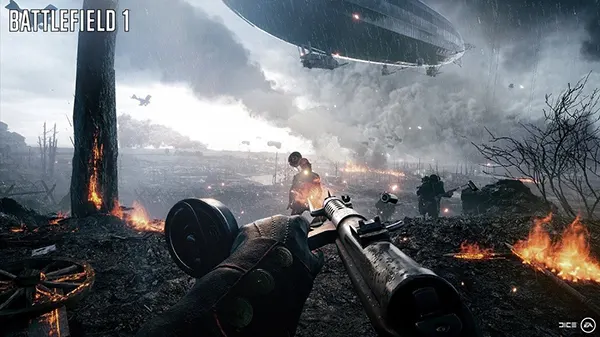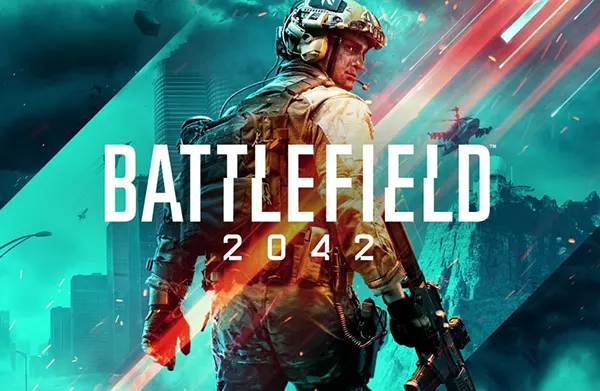In the mobile gaming sector, few launches have sparked as much curiosity as EA’s upcoming Battlefield Mobile. With the enduring popularity of Call of Duty Mobile by Activision, the natural question arises — can EA match or even surpass this benchmark? Both franchises have deep roots in the world of first-person shooters, but the transition to mobile isn’t just about name recognition; it’s about execution, timing, and understanding the evolving needs of mobile players in 2025.
EA’s Battlefield Mobile Strategy: Reboot or Risk?
Battlefield Mobile isn’t EA’s first foray into portable gaming, but it’s certainly their most ambitious. After several delays and strategic resets, EA is attempting to bring large-scale, destructible environments — a core feature of Battlefield — to handheld devices. Unlike Call of Duty Mobile, which was launched with robust multiplayer and battle royale modes right from the start, EA seems to be focusing more on replicating classic conquest-style gameplay with a heavier emphasis on realism.
The biggest advantage EA holds lies in its proprietary Frostbite engine and deep experience with sandbox-level design. However, this also presents technical challenges when adapting to mobile architecture. Battlefield Mobile must balance high-end graphics with smooth gameplay across a wide range of devices — a hurdle that Call of Duty Mobile overcame through smart scalability and collaboration with Tencent’s TiMi Studios.
Another point of concern is EA’s current position in mobile publishing. Activision had an established partnership with Chinese developers, which accelerated the development cycle and ensured regional success. EA has opted for internal development and minimal outsourcing, which, while potentially more cohesive in vision, may limit global responsiveness and adaptability.
Competitive Mobile FPS Landscape in 2025
As of mid-2025, the mobile shooter genre is more crowded than ever. Alongside Call of Duty Mobile, titles like PUBG Mobile, Apex Legends Mobile (also from EA, though recently scaled back), and Garena Free Fire continue to dominate player bases worldwide. Each offers distinct flavours of combat, monetisation systems, and performance balance.
The competition means that EA can’t afford a slow or staggered launch. Gamers today expect a full-fledged experience on day one — with multiple maps, polished mechanics, and meaningful progression systems. Battlefield Mobile will need to offer more than nostalgia; it must deliver genuine value, especially in a market that’s increasingly saturated with live-service updates and seasonal content.
Moreover, EA must contend with player loyalty. Call of Duty Mobile benefits from a well-integrated player community, frequent content drops, and esports support. Battlefield’s fanbase is strong but less cohesive on mobile, making it essential for EA to build a compelling onboarding and retention strategy from the outset.
Key Features: What Battlefield Mobile Brings to the Table
Despite uncertainties, Battlefield Mobile is expected to introduce some features that could help differentiate it. Large-scale maps, destructible environments, and class-based squad mechanics are reportedly central to its gameplay. These elements could appeal to players seeking more tactical depth compared to the faster, arcade-style gunplay of other mobile shooters.
The integration of destructibility is particularly noteworthy — if EA can deliver this without sacrificing frame rate or battery life, it would mark a technical leap forward for the genre. It could also support varied gameplay strategies and increase replayability.
Another potential strength is offline and LAN capabilities, which have been hinted at during test builds. This could position Battlefield Mobile favourably in markets with inconsistent internet access — an area where other franchises have struggled to gain ground.
Monetisation and Progression Systems
Monetisation will be a crucial aspect of Battlefield Mobile’s success. Unlike the early days of mobile FPS games, today’s users are sceptical of aggressive in-app purchase systems. EA will need to strike a delicate balance between profitability and fair progression, especially after previous controversies surrounding loot boxes in their console titles.
A season-pass model with cosmetic rewards, skill-based matchmaking, and non-pay-to-win mechanics would align with player expectations in 2025. Transparency and responsiveness to feedback will also be key in building trust among the player base.
Additionally, EA’s approach to progression — particularly how players unlock classes, weapons, and gear — will need to avoid grind-heavy tactics. Implementing meaningful in-game achievements and social incentives (like clan systems) could support long-term engagement.

Can Battlefield Mobile Sustain a Competitive Presence?
The short answer is: it depends. EA has the resources, legacy, and development infrastructure to succeed — but execution is everything. Battlefield Mobile must launch with a clear identity, differentiated features, and a performance standard that meets or exceeds current leaders in the space.
Call of Duty Mobile’s dominance didn’t happen overnight; it grew through consistency, strong developer support, and community engagement. EA will need to emulate some of these strategies while carving out its own niche. Otherwise, Battlefield Mobile risks being a short-lived experiment in a highly unforgiving market.
The potential is undeniably there, especially with increased interest in mobile esports and hybrid cross-platform experiences. If EA can deliver a stable launch and build momentum over time, Battlefield Mobile could eventually earn a seat at the table alongside its fiercest competitors.
Final Thoughts on EA’s Mobile Ambitions
For now, players and analysts alike are watching closely. EA’s track record on mobile is mixed, but Battlefield Mobile represents a chance to reframe that narrative. The success of this project will hinge on technological finesse, user experience, and sustained commitment — not just brand reputation.
As mobile devices continue to close the gap with consoles in terms of performance, the stakes are higher than ever. Battlefield Mobile doesn’t just need to match Call of Duty Mobile — it needs to redefine what’s possible in the genre. Only time will tell if EA is ready for that challenge.
In the end, whether Battlefield Mobile becomes a cornerstone of mobile FPS gaming or a missed opportunity will depend on its ability to meet the elevated expectations of the 2025 mobile gamer.

